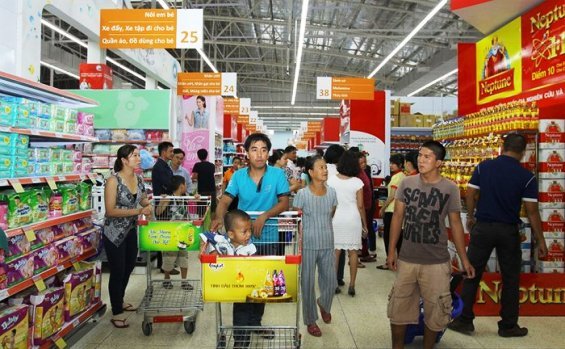|
Foreign businesses asks
to clarify conditions for opening retail points
Foreign business associations have
unanimously voiced their opinions about the necessity of loosening and
clarifying the conditions foreign investors must satisfy to be able to open
new retail points in

According to Hong Sun, Secretary General of the ROK
Chamber of Commerce in
To date, foreign distributors still cannot penetrate
the Vietnamese market deeply because of the barriers installed by the
government, including the ENT (economic needs test).
Sun believes that ENT is a tool being used by the
government of
With ENT, Vietnamese management agencies have the right
to refuse the foreign retailers’ proposals to open second and subsequent
retail points, reasoning that the retail points are not necessary in the
localities.
In fact, the government of
In 2013, the Ministry of Industry and Trade released
the Circular No. 08, stipulating that the ENT would not be required in case
foreign distributors plan to set up the retail points with the area of less
than 500 square meters in the areas programmed for the goods trade
development.
The regulation is described as “more open” than that
committed by
Nevertheless, Sun noted that foreign investors still
face barriers because they have to ask for the permission to set up new
retail points.
Meanwhile, the Circular No. 08 does not stipulate the
time-limit for management agencies to decide whether to approve the foreign
retailers’ proposals on the opening of new retail points. The delays by the
concerned agencies in dealing with administrative procedures would affect foreign
investors’ business.
Sun went on to say that it is the ENT mechanism which
has made South Korean investors hesitant to implement their business
expansion plan. The investors include Lotte Mart with the plan to open 60
retail points by 2020.
Meanwhile, Emart showed its intention to invest in
He believes that there is no need to be too cautious in
protecting Vietnamese retailers by pursuing the ENT mechanism, which would
prevent foreign investors.
Csaba Bundik, Managing Director of EuroCham
He thinks that the ENT is “vague” which leads to
different ways of interpretations. In many cases, local authorities have to
consult with the central agencies before making decisions, which would cost
foreign investors a lot of time to wait for final decisions.
In reply, Dinh Thi My Loan, Chair of the Vietnamese
Retailers’ Association, admitted that Vietnamese retailers, which remain weak
in financial capability and experiences, need the protection by the
government.
She also said that the
TBKTSG
|
Thứ Hai, 31 tháng 3, 2014
Đăng ký:
Đăng Nhận xét (Atom)
Không có nhận xét nào:
Đăng nhận xét